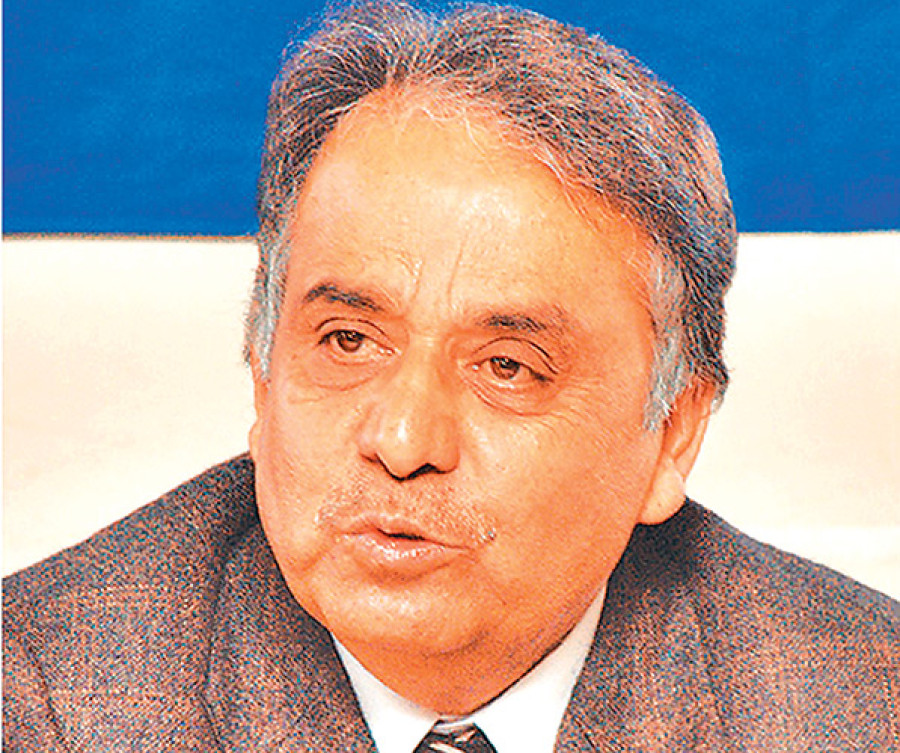Miscellaneous
Dhungana makes a comeback to politics after 23 years
Daman Nath Dhungana. The name had stopped sounding “political” for a while. The first Speaker of Parliament after the restoration of democracy in 1990, Dhung-ana has returned to politics after a gap of 23 years.
Kamal Dev Bhattarai
Daman Nath Dhungana. The name had stopped sounding “political” for a while. The first Speaker of Parliament after the restoration of democracy in 1990, Dhung-ana has returned to politics after a gap of 23 years.
On Thursday, the Nepali Congress, in a surprise move, fielded him as its first-past-the-post candidate from Bhaktapur-2. Dhungana will be pitted against Mahesh Basnet, a common candidate of the left alliance of the CPN-UML and CPN (Maoist Centre), in the elections to be held on December 7.
After losing parliamentary elections in 1994, Dhungana, a senior lawyer and legal luminary of Nepal, was not active in electoral politics. In the last two decades, he made an image for himself as a senior civil society member.
He was appointed as the national facilitator, advisor and observer of Nepal’s peace negotiations processes from 2003 to 2009. He played an instrumental role in bringing the rebel Maoist party to the negotiating table. At one time, he was said to be “too close” to the Maoist party, a charge he has always denied.
“I was always associated with the Nepali Congress even though I was not active in day-to-day politics,” Dhungana told the Post after filing his candidacy on Thursday. On the question of why he decided to return to politics after such a long gap, the former House speaker, who served from 1991 to 1994, said that it was the result of his personal desire and NC President Sher Bahadur Deuba’s request.
Dhungana is still remembered for the role he played as a non-partisan speaker.
“I was also interested to revive my political career and the party president came up with the proposal that I contest the elections,” said Dhungana. “My ultimate goal is strengthening the democratic alliance initiated by PM Deuba.”
Dhungana’s choice as an NC candidate, however, has taken many Congress leaders by surprise, just as there has been disappointment within the party for leaving out some who have consistently been involved in active party politics. Some leaders said Dhungana was picked without consultation in the party. He was not even recommended by the party’s district committee.
But party insiders said there are multiple reasons for choosing Dhungana. First, Dhungana can garner some votes of the left alliance as well due to “his proximity” with the Maoist Centre, mainly its Chairman Pushpa Kamal Dahal. The NC leadership also wants to defuse the charges that the party often tends to ignore towering figures like Dhungana, they said.
A Congress leader, who did not want to be named, said there was growing pressure to select Dhungana in view of the UML’s extreme penetration into the I/NGOs.
Dhungana, a founder executive member of Amnesty International, served as the president of the Supreme Court Bar Association in 1984.
“There could be multiple factors for Dhungana’s selection, but he deserved it and it’s a right move by the NC,” said political analyst Puranjan Acharya.




 20.22°C Kathmandu
20.22°C Kathmandu










